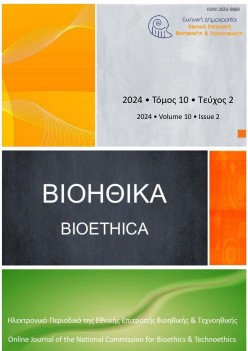Navigating Precision Medicine Within European Law: Ethical Considerations and Legal Challenges
Resumen
Precision medicine, characterized by personalized treatment strategies based on extensive patient-specific data, has gained prominence in recent years. This paradigm shift from the traditional one-size-fits-all approach aims to optimize healthcare outcomes by integrating genomic, clinical, and lifestyle information. While precision medicine's transformative impact in fields like oncology and pharmacogenomics is evident, regulatory frameworks, including GDPR, Clinical trials regulation, IVD regulation, and the recently effective Health Technology Assessment Regulation (HTAR) from January 2025, are scrutinized for their contributions and identified gaps. Despite significant progress, challenges persist, including issues related to informed consent, companion diagnostics, direct-to-consumer genetic tests, intellectual property rights, and diverse healthcare policies across the EU. The lack of global harmonization adds complexity to regulatory environments. The conclusions stress the dynamic nature of precision medicine, proposing proactive measures such as the establishment of multidisciplinary committees within the EU to adapt swiftly to emerging advancements and ensure seamless integration into healthcare systems. This symbiotic relationship between precision medicine and European law reflects a commitment to creating an environment where cutting-edge medical technologies can thrive, contributing to a healthier and more resilient population through ongoing efforts to refine legal frameworks.
Article Details
- Cómo citar
-
Vlachothanasi, E. (2024). Navigating Precision Medicine Within European Law: Ethical Considerations and Legal Challenges. Bioethica, 10(2), 22–37. https://doi.org/10.12681/bioeth.39042
- Sección
- Original Articles

Esta obra está bajo una licencia internacional Creative Commons Atribución 4.0.
Authors who publish with this journal agree to the following terms:
- Authors retain copyright and grant the journal right of first publication with the work simultaneously licensed under a Creative Commons Attribution CC BY 4.0 License, which allows for immediate free access to the work and permits any user to read, download, copy, distribute, print, search, or link to the full texts of articles, crawl them for indexing, pass them as data to software, or use them for any other lawful purpose. Appropriate credit must be given by citing the author(s) and the original publication in this journal.
- Authors are able to enter into separate, additional contractual arrangements for the non-exclusive distribution of the journal's published version of the work (e.g. post it to an institutional repository or publish it in a book), with an acknowledgement of its initial publication in this journal.
We encourage authors to deposit their articles, as well as data underlying the publications, in institutional and/or other appropriate subject repositories.
Bioethica permits and encourages authors to archive the final publication pdf in institutional (e.g. the repository of the National Hellenic Research Foundation) or other appropriate subject repositories (e.g. SSOAR repository for social sciences), in compliance with institutional and/or funder open access policies, after publication in the BIOETHICA. Authors must provide bibliographic details that credit publication in the journal, as well as related funding details (when applicable).
Lists of institutional and other subject-based academic open access repositories can be found listed by country at the registry http://opendoar.org/countrylist.php
If your institution does not possess a repository you may deposit a copy of your paper at no cost with www.zenodo.org , the repository supported for open access research in the EU by the European Commission, through the project OpenAIRE (www.openaire.eu )



